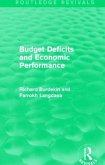According to the health data released by the Organization for Economic Cooperation and Development (OECD), the United States spends more per capita on healthcare than any other OECD country. Currently, U.S. healthcare spending constitutes $2.5 trillion, or 17.3 percent of GDP, with healthcare costs increasing 9 percent annually. To reverse this alarming trend, the Obama administration recently led the effort to dramatically reform healthcare policy, laws, and regulations. This book provides you (whether a healthcare policy maker, hospital administrator, pharmaceutical company manager, or other healthcare professional) with practical guidance for leveraging supply chain principles to better manage healthcare resources and control healthcare costs. It introduces basic supply chain management concepts, terminologies, and tenets. Other included topics are strategicalliances among healthcare partners, value analysis of healthcare services and products, the impact of healthcare reforms on healthcare supply chains, and the development of performance metrics for the healthcare supply chain and benchmarking.
Hinweis: Dieser Artikel kann nur an eine deutsche Lieferadresse ausgeliefert werden.
Hinweis: Dieser Artikel kann nur an eine deutsche Lieferadresse ausgeliefert werden.








